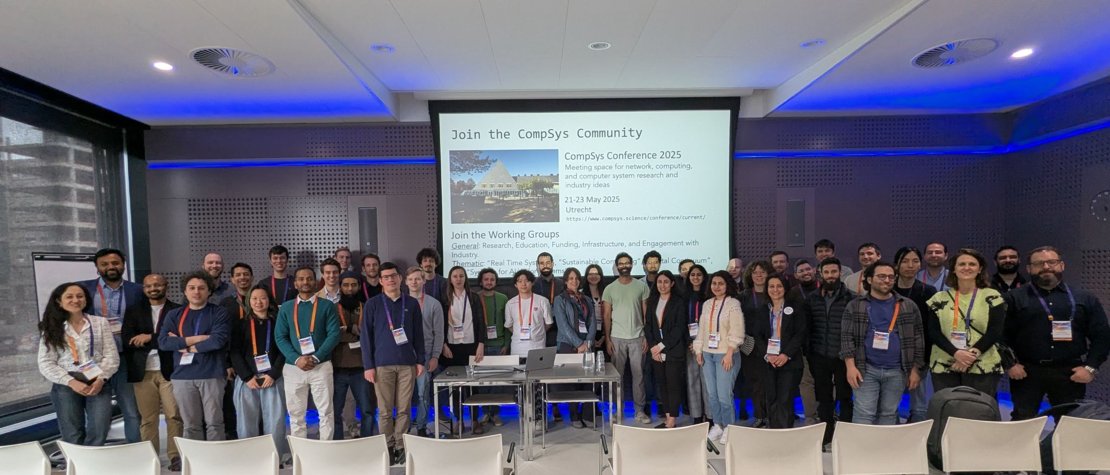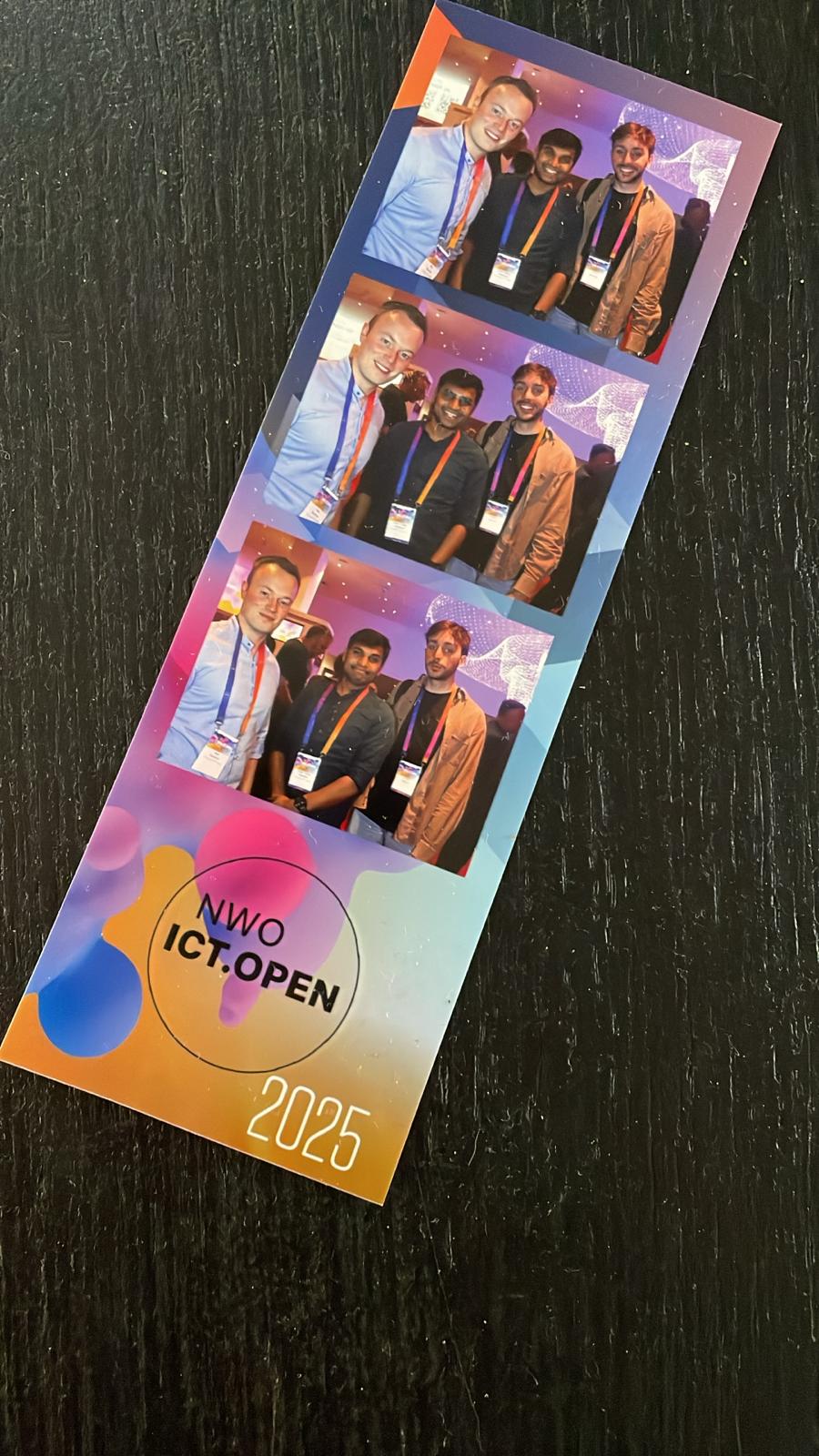Co-organized by Özlem Durmaz Incel and Nitinder Mohan (TUDelft), the CompSys track session titled "Research for a Sustainable and Equitable Digital Infrastructure" took place on April 15th in Utrecht as part of Ict.Open 2025, promoting a lively discussion among experts. Sagar Dolas's keynote (SURF) emphasised a human-centered co-design method to promote equitable and sustainable digital ecosystems, given the rise of AI applications and their computational needs. The program featured six engaging presentations on topics like Border Gateway Protocol (BGP) security in Dutch infrastructure, the real-world effects of the Metaverse, energy-efficient FPGA computing, resource offloading in smart homes, the resilience of Large Language Model (LLM) services, and predictive graph-processing tools. Additionally, there were ten posters and demonstrations showcasing extensive research in the CompSys community, covering satellite communications, network resilience, Internet transparency, serverless systems, and inclusive UI design.
Among these contributions, Sabari Nathan Anbalagan presented his poster on Cyber-Physical System Reliability with Agentic AI, which attracted attention from both academia and industry and was nominated for the jury award for best poster.
Additionally, Stefano Simonetto delivered an oral presentation in the Security and Trust track titled Understanding Vulnerabilities by Connecting to MITRE, where he received valuable feedback through insightful exchanges with researchers and practitioners alike—an enriching experience that emphasized the collaborative spirit of the event.






